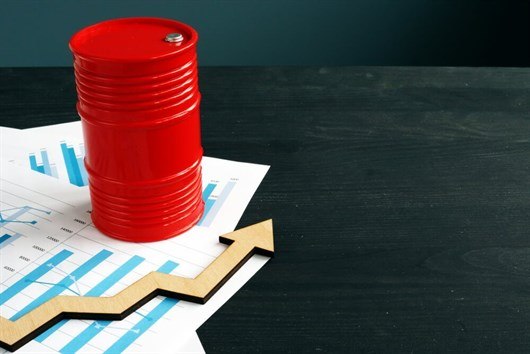Ukraine crisis could send petrol prices soaring to 180p-per-litre

Motorists could be hit with eye-watering fuel prices in the wake of the Russia-Ukraine conflict, with one market commentator predicting that petrol could soar to 180p-per-litre and diesel 185p in the next two months.
Russia is one of the world's largest oil producers and the conflict has already pushed oil prices to record levels, with petrol at 156.37p and diesel at 162.28p on 7 March 2022.
Fuel retailers are expected to pass on further increases in the wholesale price of fuel to motorists at the pumps.
Gordon Balmer, executive director of the Petrol Retailers Association (PRA), which represents independently owned forecourts (around 65% of forecourts), said that PRA members have “watched the unfolding events in Ukraine with concern".
"This will have an impact on oil prices, which will flow through to the wholesale price of petrol and diesel...[our members] will need to respond to changing market conditions and must account for any increase in the cost of product to ensure that they can continue serving their community."

When it comes to predicting how high fuel prices could rise, Howard Cox, founder of the FairFuelUK campaign, said:"How long is a piece of string?
"Credible indications put £1.60 as the immediate hit and long term, two months, I see £1.70 to £1.80 for petrol and up to £1.84 for diesel as more than likely."
The RAC says petrol pump prices could hit 160p by the end of the week .
RAC fuel spokesman Simon Williams said: “Another day of record average pump price highs is putting petrol on a rapid journey towards 160p a litre and diesel to 165p.
"Given the speed of increases, drivers could unfortunately see this by the end of the week. And as these are averages far higher prices will be appearing on forecourt totems up and down the country.
Government should cut fuel duty
Fuel duty makes up the majority of the price of a litre of fuel and Cox urged the Government to take action to reduce costs for motorists.
"The Government must cut fuel duty now as they are wallowing in a shed load of extra VAT because of the eye-watering cost of filling up," he said.
Williams added: “The Chancellor needs to act now to cut VAT to save homes and businesses from untold financial pain.
"A cut to 15% would save drivers 6.5p on petrol based on the current average of 156.37p whereas for diesel at an average of 162.28p the saving would be 7p a litre.
"Mr Sunak also needs to be prepared to go further if prices continue to rise as expected, after all it doesn’t seem fair that the Government’s coffers should benefit from the hike in the oil price while drivers suffer.
“Currently, around 26p a litre is going to the Treasury from VAT alone, so a cut to 15% would only take the tax take back to around 20p a litre which was broadly what was collected over the last three years.”
FairFuelUK also wants an independent pump price monitoring body to be created, like consumer watchdogs Ofgem, Ofcom and Ofwat.
In 2021 the record average price for petrol was 147.72p and 150.96p-per-litre for diesel on 22 November 2021 after the price of a barrel of oil more than doubled in 2021 with the ongoing impact of the Covid-19 pandemic affecting supply and demand.
What factors determine fuel prices?
Wholesale fuel prices determine how much you pay at the pumps, although fuel retailers have a part to play as they can choose to cut or increase prices.
The Government can also influence price by what it sets the fuel duty at. Currently it is set at 57.95p-per-litre and this figure has been the same since March 2011. VAT at the standard 20 per cent rate is also added to every forecourt fuel transaction.
The other factors influencing wholesale fuel prices are: the global price of crude oil; supply and demand for crude oil; oil refinery production and capacity; the pound to dollar exchange rate, as refined fuel is sold in US dollars per metric tonne; distribution costs; and the margin fuel retailers decide to take.
What makes up the cost of a litre of petrol?
| Pence per litre | Percentage of total cost | |
| Wholesale petrol (90 per cent) | 46.79 | 31 |
| Bio content (up to 10 per cent) - E10 | 9.39 | 6 |
| Delivery and oil company | 1.70 | 1 |
| Retailer margin | 8.63 | 6 |
| Fuel duty | 57.95 | 39 |
| VAT | 24.84 | 17 |
| Retail price | 149.30 |
Source: RAC Fuel Watch
What makes up the cost of a litre of diesel?
| Pence per litre | Percentage of total cost | |
| Wholesale diesel (90 per cent) | 46.59 | 31 |
| Biofuel content (up to 10 per cent) - B7 | 14.50 | 9 |
| Delivery and oil company | 2.10 | 1 |
| Retailer margin | 6.12 | 4 |
| Fuel duty | 57.95 | 38 |
| VAT | 25.42 | 17 |
| Retail price | 152.68 |
Source: RAC Fuel Watch
Has using E10 caused my fuel economy to drop?


 Sarah Tooze
Sarah Tooze
 Honest John Awards 2017: Land Rover Discovery Sport named Most Popular SUV for second year in a row
Honest John Awards 2017: Land Rover Discovery Sport named Most Popular SUV for second year in a row
 2022 Smart #1 SUV: price, specs and release date
2022 Smart #1 SUV: price, specs and release date
 2023 Ferrari Purosangue SUV: Prices, specs and release date
2023 Ferrari Purosangue SUV: Prices, specs and release date
 Citroen DS3 Racing revealed
Citroen DS3 Racing revealed
 Infiniti adds diesel to the range
Infiniti adds diesel to the range
 Volvo XC90 chosen as SUV of the year at 2014 Honest John Awards
Volvo XC90 chosen as SUV of the year at 2014 Honest John Awards
 March new car registrations better than expected
March new car registrations better than expected
![2019 SEAT Ateca 2.0 TDI FR [EZ] 5dr DSG](http://images.honestjohn.co.uk/imagecache/url/crop/90x60/https/assets.heycar.co.uk/t_default-export/f_auto/application_assets/vehicles/pictures/3a9ce9720d76739c64ad148773de54af/2c1860315857946d841f247b0ffdedbb.jpg)

![2020 Volvo XC90 2.0 B5D [235] R DESIGN Pro 5dr AWD Geartronic](http://images.honestjohn.co.uk/imagecache/url/crop/90x60/https/assets.heycar.co.uk/t_default-export/f_auto/application_assets/vehicles/pictures/a50052faf7fb10bc432faac1dd326f06/e3fec2169407751543a52b7b61d2a362.jpg)


.jpg)






Andy Rat 1267 on 8 March 2022
Diesel is already 171.9p per litre and petrol is 164.9p per litre in Leyland, Lancashire!De Sisti on 9 March 2022
Here's a link to a poster implying that if you drive your vehicle, fuelled with petrol/diesel sourced in Russia, you're helping their war-effort; and proposes other transport solutions:
pbs.twimg.com/media/FMZ-fCCX0AMpHyg?format=jpg&...l scontent-lcy1-2.xx.fbcdn.net/v/t39.30808-
scontent-lcy1-2.xx.fbcdn.net/v/t39.30808-6/2755397...9
Edited by De Sisti on 09/03/2022 at 14:07
Add a comment